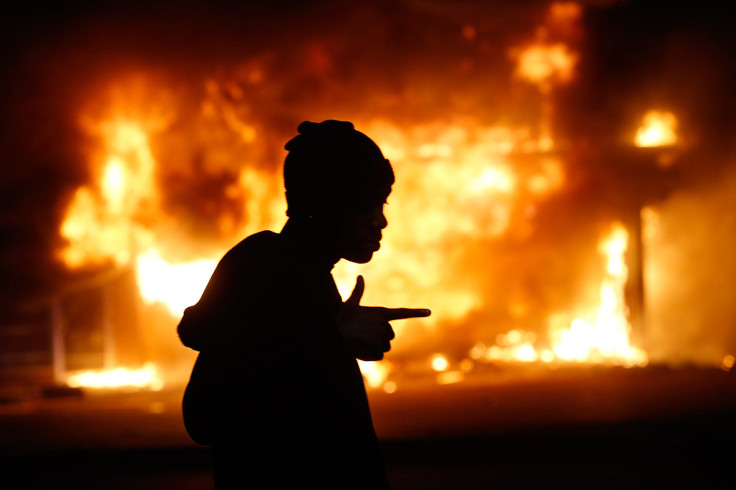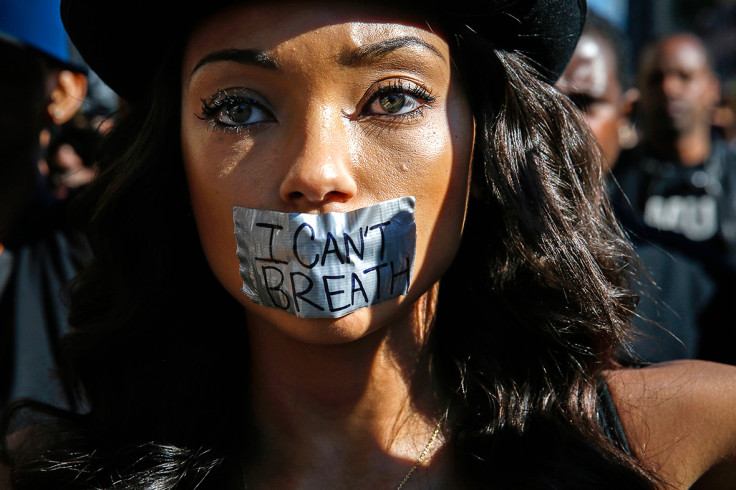Martin Luther King Day 2015: We need to affirm that Black Lives Matter

Black Lives Matter became the mantra of protesters across the United States in 2014. The shattering events of the year – beginning with the death of unarmed teenager Michael Brown in Ferguson, Missouri – renewed the civil rights movement on police behaviour, racial inequality and criminal justice, which had been slow-burning since the death of Trayvon Martin in 2012.
Events over the last few months have sparked a social justice movement of a scale not seen in half a century. Driven by social media, Black Lives Matter has become a 21<sup>st century resistance to the racial state violence and prejudices that have been a constant theme in African-American history.
The problem has intensified further during the administration of the first black president, whose election in 2008 was widely interpreted as heralding a new, post-racial era. Sixty years after Brown v Board of Education, schools are less diverse than at any other time in the last four decades.
Despite the passage of the Fair Housing Act in 1968, neighbourhoods across the US remain firmly segregated along racial and socioeconomic lines. Numerous African-American men were fatally killed by police in the last 12 months. It is clear we need to publicly reaffirm that Black Lives Matter.
Police brutality
Tamir Rice, 12, was killed in a playground for holding a toy pistol; Akai Gurley, 28, was shot on the stairwell of a housing block; Michael Brown, 18, was shot while unarmed; and Eric Garner, 38, was choked to death for allegedly selling untaxed cigarettes. Captured on video, Garner repeated "I can't breathe" 11 times – a phrase now worn on the T-shirts of demonstrators, professional athletes and children nationwide.
The difference in the number of killing in the US and the rest of the world is startling. Hundreds have been killed by law enforcement each year – and although all ethnic groups have become victims, minorities are being shot in numbers much greater than their proportion in the population.
Such arguments suggest the use of excessive force by police officers unfairly target African-Americans, but the numbers are not there to prove it. In 1994, Congress ordered the Justice Department to provide annual data on police use of excessive force, but more than 20 years later it has still not been carried out.
Without reliable data, we have to go by figures provided by academics and social justice organisations. According to professor and author Marc Lamont Hill, a black civilian in the US is shot by a police officer every 28 hours. A study by the Malcolm X Grassroots Movement found that at least 313 African-Americans were killed by police, security guards and self-appointed vigilantes in 2012.
While grand juries were designed to be a check on prosecutors and law enforcement, criticism has emerged as a corrupt shield to protect those with power. A Missouri grand jury failed to indict officer Darren Wilson for fatally shooting unarmed Brown. In New York, a grand jury decided not to indict officer Daniel Pantaleo for putting Garner in the banned chokehold that killed him, despite it being captured on video and ruled a homicide by the medical examiner who performed the postmortem.
According to the Bureau of Justice Statistics, US attorneys prosecuted 162,000 federal cases in 2010 – the most recent data. Grand juries declined to return an indictment in 11 of them. This happened in 80 cases of the 81 involving police officers.

Institutionalised racism
Some are quick to point out the gains made by African-Americans since the Civil Rights Movement, including the appointment of Barack Obama, the first black president in the White House. But statistical data paints a different picture of a nation that remains systemically divided.
The current incarceration rate for African-American men stands at 4,347 per 100,000, which is over six times the national average. According to the Sentencing Project, African-Americans serve virtually as much time in prison for a drug offence as Caucasians do for a violent offence.
Perhaps even more disturbingly, of all ethnic groups, African-Americans have the highest poverty rate at around 27.4%. The average black household net worth stands at $4,995 compared with $97,000 for whites.
Racial inequality continues into the education system. Data collected from every US school district by the US Education Department found students of colour were more likely to receive more punishment, and less access to veteran teachers than their white peers. While 5% of white students were suspended annually, 16% of black students suffered the same fate.
Martin Luther King Jr Day has been celebrated on the third Monday of January since Dr King was assassinated in 1968. But as America prepares for the national holiday, thousands are using the anniversary of the civil rights leader's birth to call for an end to racial bias and profiling, and an independent review board for police.
Mica Grimm, a community organiser from the Minneapolis branch, said the goal of the four-mile city march is to link the civil rights movement with the current effort to call attention to police brutality.
"We can't honour MLK's words while negating Black Lives Matter and the protests that are happening across the county," she said.
"Unfortunately, Dr King's legacy has been clouded by efforts to soften, sanitise and commercialise it," a statement on the group's Facebook page read. "Impulses to remove Dr King from the movement that elevated him must end... We will walk in the legacy of Dr King and the movement that raised him."
© Copyright IBTimes 2025. All rights reserved.






















